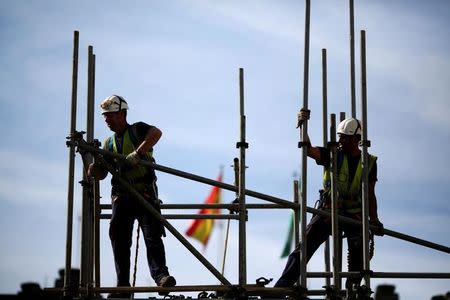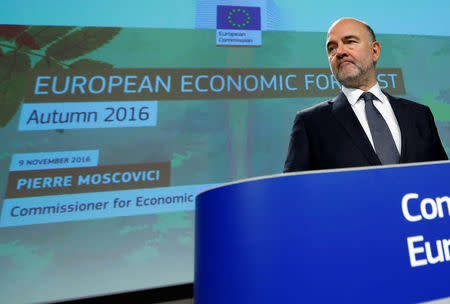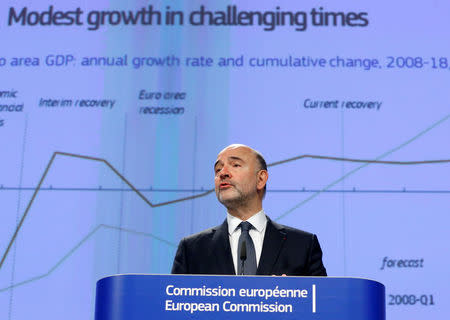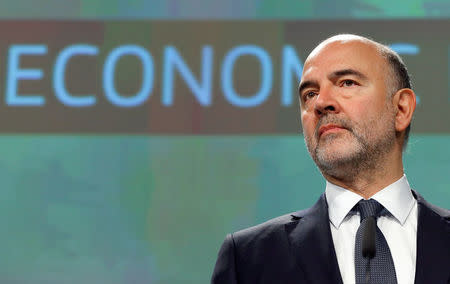EU cuts euro zone, UK growth forecasts citing political uncertainty
By Francesco Guarascio and Jan Strupczewski BRUSSELS (Reuters) - Euro zone and Britain's growth will slow next year, the European Commission said on Wednesday, cutting its economic forecasts for 2017 because of increased political uncertainty, including Britain's Brexit vote, and weakening global trade. The EU executive estimated that growth in the 19 countries sharing the euro would slow to 1.7 percent this year from 2.0 percent in 2015 and decelerate further to 1.5 percent in 2017 before picking up again to 1.7 percent in 2018. It revised down its previous forecasts released in May of an expansion of the euro zone Gross Domestic Product by 1.8 percent in 2017, but slightly raised the forecast for this year from a previously estimated 1.6 percent. "European growth will hold up in 2017 against a more challenging backdrop than in the spring," the EU commissioner for economic affairs Pierre Moscovici said. "Political uncertainty" after Britain's vote to leave the EU and amid a surge of eurosceptic parties in the continent was seen as the first cause of the expected slowdown, the Commission said in a note that made no reference to the victory of Donald Trump at the U.S. elections. Slow growth outside the EU and a weakening of global trade are also seen as weighing on European growth. Britain's GDP will pick up this year increasing by 1.9 percent, more than the 1.8 percent previously estimated by the EU, but growth will nearly halve next year to 1.0 percent, much lower than the 1.9 percent forecast in May. The Commission said the revision of Britain's growth forecasts reflected the impact of "heightened uncertainty following the referendum and its impact on business confidence and broader economic conditions." But the British slowdown is much less acute than the worst-case scenario predicted by the EU executive in the weeks after the Brexit referendum, when a recession was considered possible next year in Britain. Domestic demand will be the main driver of European economic growth in the years to 2018, although it may be hampered by a likely rise in energy prices, which will on the other hand help inflation to pick up in the euro zone. Inflation, which the European Central Bank wants to keep below, but close to 2 percent over the medium term, is to pick up to 0.3 percent this year from zero last year and to 1.4 percent in 2017 and in 2018, the Commission said. It slightly increased its forecasts for this year but maintained unchanged estimates for 2017. In Britain, inflation is expected to rise "rapidly and significantly" to 2.5 percent next year, much higher than the 1.7 percent increase expected by the Commission in May, mostly driven by the depreciation of the pound and the consequent rise of import prices, the Commission said.

 Yahoo News
Yahoo News 



